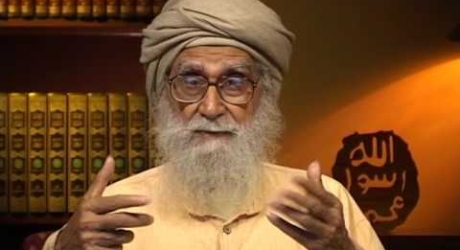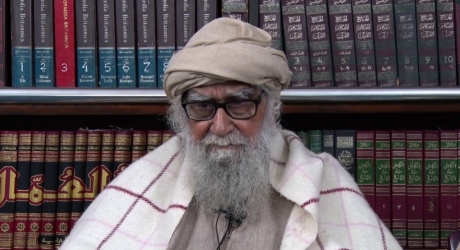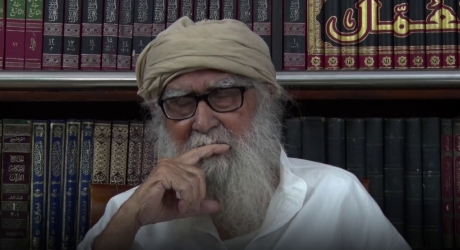Owing to his limitations, man cannot see God in this present world, but he experiences God’s mercy and blessings at every moment, and this experience is the real source of his love of God. Everything man has received in this world is a blessing from God. The more one thinks of divine blessings, the more one’s love of God will increase. The source of the love of God is the discovery of blessings and not the sight (deedar) of the Benefactor (God). The realisation of God is the discovery of the Benefactor, who is the source of all blessings. When man attains this realisation in the real sense, the love of God wells up within him. Every fibre of his being is enlightened with divine love. Obedience to God is, without doubt, the demand of faith, but it would be an underestimation of the love of God if it is taken only in the sense of obedience. Obedience is only a legal description of the relationship with God, whereas love entails man’s entire existence being moulded in the remembrance of God. A man comes to acknowledge God in the perfect sense when it is with the whole of his being. The Quran says: “Remembrance of God gives one’s heart peace of mind”. (13:28) Moreover, it means that only the love of God can give man peace of mind in the real sense.
Introduction
Love of God is the most important concern of a religion. Ironically however, it is the most neglected one too. Here I would like to refer to an article that was published in the Times of India today (dated October 4, 2009). This article entitled, “The Truth is, we all lie” was written by an Indian residing in
Love of God
In my experience, I have realised that the feeling of true love for God eludes mankind. For instance, I spoke to a mother who loved her son immensely. I told her that your son is a mere taker, he doesn’t give you anything and God, on the other hand, is the ultimate Giver. Comparing the blessings which God endows on us (including our children), we must love God billion times more than our children. I asked that lady, “Do you love God as much as you love your son?” Our conscience for sure will give us the answer. I drew such a comparison in the light of an Arab proverb that says:
“It is in comparison that we understand.”
Whereas he keeps showering love upon his son and daughter, man has just lip-service to offer to God. This ingratitude on the part of man is when even the very act of a speaker conveying and a listener responding is possible due to a very well-synchronised and rather overwhelming interplay of events. In fact, a scientist wrote that once while he was busy working, his young daughter came up to him and started talking. During the conversation, his mind began visualising the miracle that speech and hearing were. He started thinking about the process by which voice reaches the ear and then the brain. But he suddenly jolted his thoughts out of that framework because he realised that his thoughts were drawing him closer to realising the existence of the Creator. This is a typical example of how man proves his ungratefulness before his Creator. Despite being showered by immense bounties by his Creator, man’s centre of love remains his kith and kin.
Sufi practice
Sufi practice introduced a reduced form of expressing the love for God. They projected love of God (Muhabbat-e-elahi) as romantic love (Ishq-e-elahi). This was further reduced to Qawwali that cast ecstasy. I once visited the khānqāh of an Alim Sufi which was famous for chanting the name of God 24X7. I observed that the chants were merely a matter of numbers. Disciples were available on a shift-basis and they kept repeating a pre-defined set of words. It is a grave underestimation to think that God can be found through such practice.
What is love of God?
Love of God can be described as deep attachment to God. Such a person remembers God alone and as he speaks of God, his soul enlivens. God is a part of his thought process at all times. I have not found anyone who has such an attachment to God. Man is attached to every other object much more than God. Be it his children, spouse or lover - except God man professes deep love for every other being.
Deep attachment is no simple thing. It transforms your entire being. A most recent example of this is the 20- year old Rukhsana, the frail girl from
One who develops such attachment with God, his soul would begin to get nourishment by the remembrance of God. He would start living in God – that is true love for God!
Effect of love of God
True love for God makes you see the world as abounding in blessings of God. Where ever you see, it is a manifestation of His blessings. The sun, the moon, the birds and the trees – even his own being would remind him of the blessings of God. For instance, a person visited the house of one of his village acquaintances who had become a Member of Parliament. He resided in a palatial city house that was equipped with all facilities. He was so grateful to the political personality because of which he was partaking of all the luxuries that before even referring to any object possessed by him, he used to express his gratitude towards his benefactor. This was a unique experience because I have never come across anybody who expresses gratitude so fervently towards the blessings that God has bestowed upon him.
God has laid down the following criterion in the Quran to judge between believers and non-believers:
Those who believe love God most. (2:165)
This verse describes the yardstick that has been set up by God to define the love that believers must have towards God. This great love for God may also be referred to as hubb-e-shadid.
But unfortunately, man prefers setting up equals to God. These equals may be his business, children, spouse or lover – any object, animate or inanimate that he starts loving the most. This is an act of shirk as it is equivalent to giving the place of God to somebody else. Many for instance try to justify the excessive love for their children by calling it a natural instinct. What these parents fail to realise is that this feeling of love for their children is actually their test. This natural instinct is to help the parents to discharge their duty towards their child, not to shower him with unlimited love and adoration. This therefore serves as a litmus test to find out how attached is such a man to God despite having children and a natural instinct to look after them.
Three kinds of people in the hereafter
The traditions point out to there being three broad categories in which men would be segregated in the hereafter. One kind would be those who would have earned eternal hell fire for themselves. Further, there would be two categories of the paradise dwellers. One would be those who discharged their duties towards fellow men and God in a regular way and did good deeds by following their conscience within the realms of their capacity. The second category would be of those who would go out of their way to follow the commandments of God and accomplish the work He wants man to do.
A verse in the Quran describes the prayer of Asiya, the wife of Pharoah. Praying to God, she said:
My Lord, build me a house in nearness to You in
This verse clearly alludes to the fact that one category of paradise dwellers would find place in God’s immediate neighbourhood. The others would stay away from neighbourhood of God but would be saved from the hell-fire. Now it’s up to man to decide, which category he would wish to stay in.
According to traditions, pre-Islamic
Companions were an excellent example of men consumed by love of God. Their spirits were so awakened that they devoted themselves fully to the cause of God. During the hajj-at-ul-widah, the Prophet of Islam implored that they spread the message of God far and wide. Traditions (Ibn Hisham) recollect that upon listening to this message of the Prophet, the companions embarked on journeys far and wide from Asia to
According to a tradition, a companion Uqbah bin Nafe undertook a strenuous journey (in 63 Hijri) to spread the Word of God. He was so passionate about doing dawah work that after having traversed entire Africa when he reached the shore of the
Conclusion
Love for God is symbolic of man’s acknowledgement of his beneficent Creator. Man in effect, expresses his thankfulness to his ultimate benefactor. From a drop of water to the mechanism by which a man can drink water are all manifestations of the greatness of our Creator. It is this gratitude towards God leads to the arousal of a feeling of love for man – which enables us to make efforts for doing dawah work. In fact, the angst in a believer to save others from hell-fire is actually the litmus test for knowing his love for mankind.
According to a tradition, once while Prophet Muhammad was seated, a funeral procession passed by. Seeing this, the Prophet stood up in respect. One of the companions’ asked him the reason for standing up as it was the funeral procession of a Jew. To this Prophet replied:
“Was he not a human being?” (Al-Bukhari)
Thus, Prophet established a commonality – a link between himself and the Jew. This is the starting point for doing effective dawah work.
The two -point formula
According to the Quran, there is only a two-point formula that the believers must adhere to in order that they may be granted entry into eternal paradise. The first one is to strive to attain marefat or God-realization. The second one is to perform Dawah work. For which, Christians present a very good example. According to a verse in the Quran:
Believers, be Good’s helpers, as Jesus, son of Mary, said to the disciples, ‘Who will be my helpers in the cause of God?’ The disciples said, ‘We shall be God’s helpers.’ (61:14)
A book entitled, ‘Adventurers for God’ recounts how a missionary group planned that they would spread Christianity in the jungles of
The Christian missionaries faced language barriers too. These missionaries stayed there – learnt the language, structured the grammar and translated Bible in the language of the tribe. This is real missionary spirit. Christians took dawah on a different plane all together. They institutionalized and made dawah work very organized. Muslims have never been able to do so. The Christians have not been very successful however, because of certain ambiguous concepts in their religion like atonement, trinity etc.
We have to do dawah as per today’s standards. Any work done on a substandard level will not gain acceptance in today’s world. The etiquettes of dawah play an equally crucial role – from style of delivery to content – all should be par excellence.
May God guide us!












